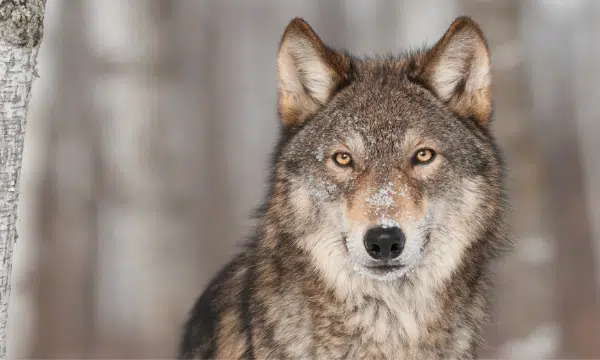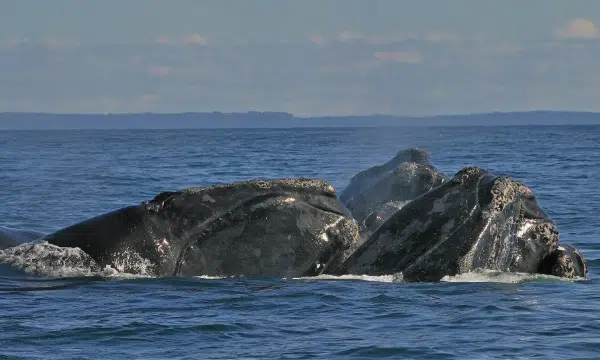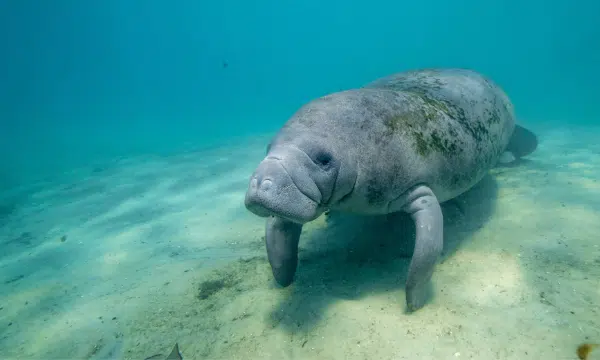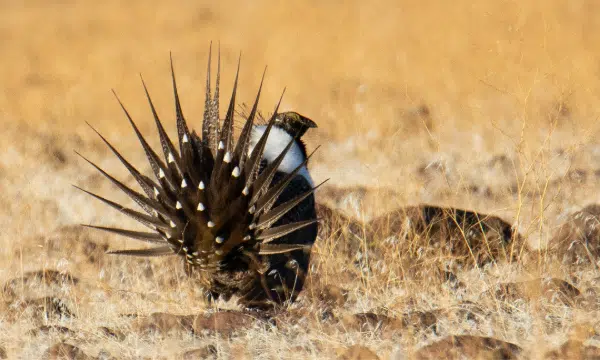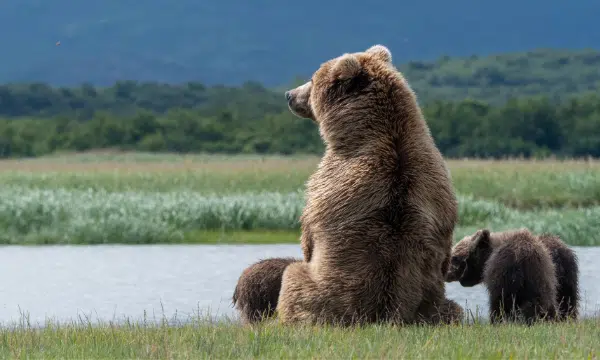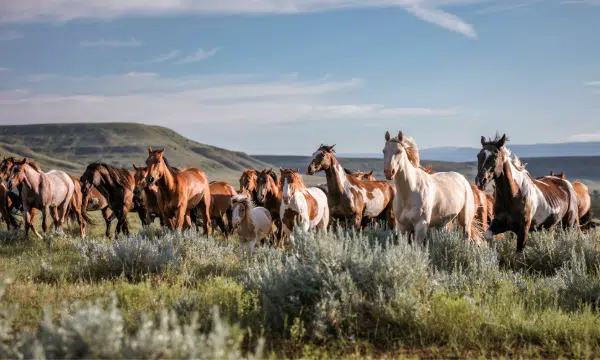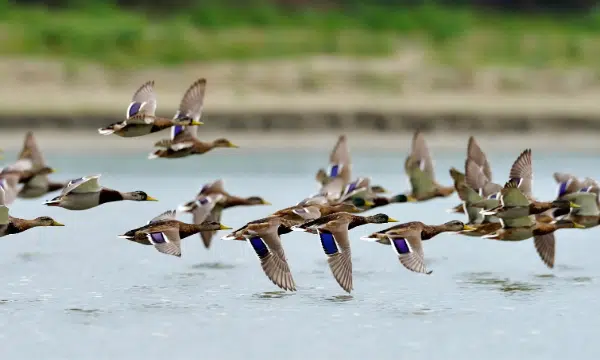Protecting Wildlife: PEER Presses Agencies to Act
PEER works with current and former government employees to shine a light on threats to America’s wildlife – and to take the actions needed to save our species and protect biodiversity.
We recognize the urgent need to protect species in the face of a global extinction crisis.
Wildlife species are threatened by habitat destruction, climate shifts, over hunting and fishing, and mismanagement by private and government entities. PEER works with public employees to identify issues of concern and protect wildlife, in many cases from the actions of public agencies. We use legal and advocacy tools to help protect all species.
Explore the pages below to learn what PEER has been doing for species in trouble, and how you can help.
Wolves
Too often, state and federal agencies abet the scapegoating of this apex predator by ranchers. PEER defends scientific research and supports actions critical to the ongoing recovery of gray wolves.
Pollinators & Pesticides
Pesticides threaten bees and other pollinators that sustain flowering plants and our food supply. PEER highlights key new science and exposes coverups of the dangers of pervasive pesticide use.
North Atlantic Right Whales
Collisions with ships and fishing gear threaten whale survival in our coastal waters. They can recover, but only if NOAA takes decisive action.
Manatees
During the past dozen years, the endangered Florida manatee has made only tenuous progress toward recovery. The U.S. Fish & Wildlife Service must act.
Greater Sage Grouse
Habitat and nesting ground destruction threaten this iconic bird. The U.S. Bureau of Land Management oversees more sage grouse habitat than any other entity, and PEER is using data to show how BLM is waiving habitat protections for oil and gas operations.
Predator Protection
States are permitting or encouraging trophy hunting and other practices threatening wolves, bears and other predator species without regard for sustainable levels. PEER believes federal funding should be contingent on compliance with sound conservation policy.
Wild Horses
Wild horses are often incorrectly scapegoated for damaging rangelands, rounded up and auctioned off. The U.S. Bureau of Land Management should use its own data on land health to inform better decision-making.
Migratory Birds
Migratory birds face many perils due to disruption of habitat and migratory patterns. PEER and public employees are fighting for action to protect them.
A SNAPSHOT OF PEER’S PAST EFFORTS
Here are some examples of how PEER is working to make a difference:
- Filed suit in an effort to restore protections to the beleaguered Louisiana black bear, challenging FWS’ claim of “recovery” for the species.
- Called out the National Park Service for dismantling its globally renowned Sea Turtle Science and Recovery Program at Padre Island and for issuing deceptive public statements.
- Achieved steps to prevent ship strikes on the highly endangered North Atlantic right whale. We continue campaigning for action as the death toll mounts.
- Exposed the biggest aerial shooting of wildlife in Alaska’s history with a toll including nearly 100 brown bears, five black bears and five wolves.
- Revealed the U.S. Fish & Wildlife Service policy that slaughtered tens of thousands of double-crested cormorants every year to benefit catfish farmers.
- Exposed the failure of state and federal officials to save the Florida panther from what biologists agree is a high likelihood of extinction in the absence of protections.
READ MORE NEWS ON WILDLIFE PROTECTION
Conservation Groups Call on Park Service to Protect the Florida Panther
Park Service Should Not Have Opened More Routes to Off-Road Vehicles in Big Cypress National Preserve
Florida Plan Dims Prospects for Manatee Survival
State Lowers Protections Despite Record Deaths and Projected Population Decline
BUSH ADMINISTRATION DENIES PROTECTION TO 16 DESERT SPECIES
Off-Road Pressure Leads to Reversal of Science on Unique Sonoran Wildlife
PERSISTENT HOMELAND SECURITY PROBLEMS AT AGRICULTURE
USDA Ignoring Security Rules While Dispensing Advice to Farmers
NOAA Adopting Ship Speed Limits to Save the Right Whale
Ship Strikes are Largest Threat to Critically Endangered Marine Mammal
SAN MIGUEL COUNTY JOINS COALITION SEEKING GUNNISON SAGE-GROUSE PROTECTION
TELLURIDE, COLO. – San Miguel County in Colorado has formally joined an effort to protect the Gunnison sage-grouse under the federal Endangered Species Act. The County’s action is in response to a decision six weeks ago by the U.S. Fish and Wildlife Service to...
Buffalo Betrayed by Official Cruelty and Indifference
Massive Slaughter Makes Bison Logo for Federal Agency “Misleading Advertising”
Another Right Whale Calf Killed Off Florida – Tail Sliced Off
Petition to the Coast Guard for Safety Zone to Slow Ships Crossing Whales’ Habitat
